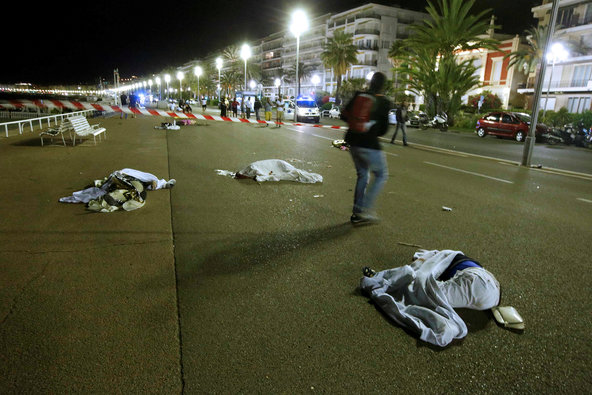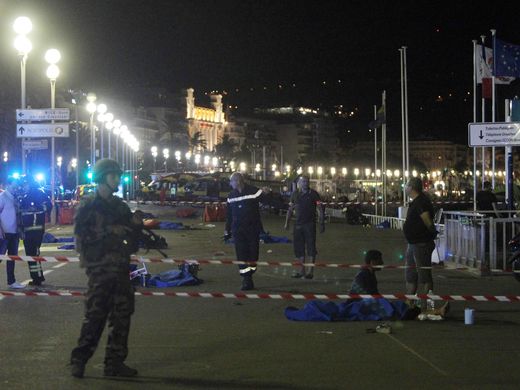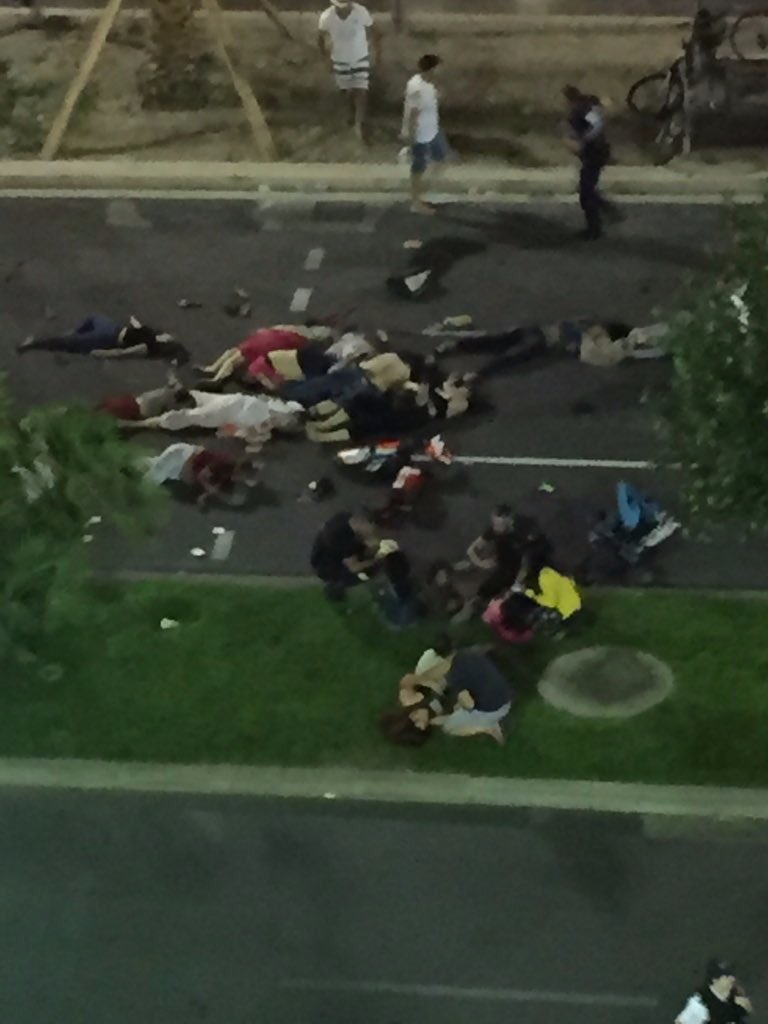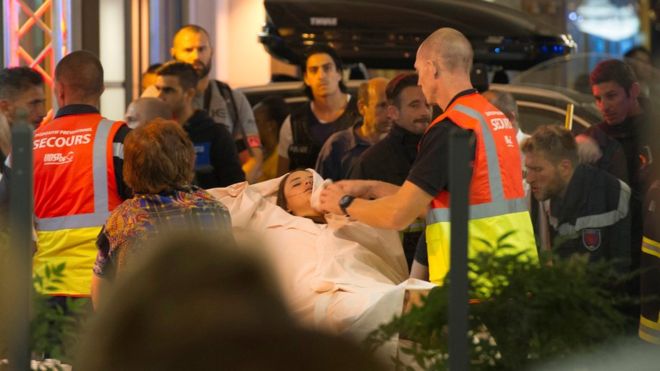A Truck Bulldozed Through A Crowd Celebrating French National Day, Killing At Least 80
The attack came 8 months after the brutal Paris attacks that traumatised the world.
People in the French resort city of Nice were celebrating Bastille Day when a truck loaded with weapons and hand grenades drove onto a sidewalk for more than a mile, bulldozing through the crowd
Officials and witnesses in Nice said at least 77 people were killed by the driver of the rampaging truck, who was shot to death by the police as officers scrambled to respond on what is France’s most important annual holiday. Graphic television and video images showed the truck accelerating and tearing through the crowd, and the bullet-riddled windshield of the vehicle, which the mayor described as full of weapons and grenades.
While officials did not immediately classify the attack as terrorism,
it has been termed as "the worst tragedy in the history of Nice"
Authorities stopped short of calling it a terrorist act, but the Paris prosecutor's office announced it was opening an investigation for "murder, attempted murder in an organized group linked to a terrorist enterprise."
Word of the situation trickled out to the world after Estrosi sent a tweet about 5:30 p.m. ET that translated to: "Dear Nice, the driver of a truck seems to have left dozens dead."
"This is the worst drama in the history of Nice," Estrosi's tweet read.
This video by a German journalist, Richard Gutjahr, was posted on Twitter. It showed the moment when the truck attacked the crowd:
So far, there have been no claims of responsibility for the attack.
However, the BBC reported that "supporters of the so-called Islamic State (IS) group have been widely cheering the attack online".
Supporters of the so-called Islamic State (IS) group have been widely cheering the attack online, says Mina Al-Lam, who analyses jihadist media activity for BBC Monitoring.
IS itself has not claimed any link with the incident.
But such a level of what appears to be co-ordinated online activism in the immediate aftermath of incidents usually signals an imminent IS claim of responsibility, she says.



